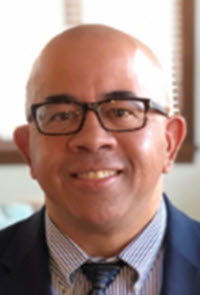Abstract
Excerpted From: Junaid Afeef, Conflict, Human Rights, and Free Speech, 112 Illinois Bar Journal 42 (April 2024) (7 Footnotes) (Full Document Requested)
 FREEDOM OF SPEECH IS FOUNDATIONAL to a free society. Most people think they support free speech, but in troubled times it's more like “Free speech for me, but not for thee.” These are troubled times in America, where many college campuses are major free speech battlegrounds.
FREEDOM OF SPEECH IS FOUNDATIONAL to a free society. Most people think they support free speech, but in troubled times it's more like “Free speech for me, but not for thee.” These are troubled times in America, where many college campuses are major free speech battlegrounds.
As an immigrant Muslim of color who has experienced xenophobia, Islamophobia, and racism firsthand throughout the half-century I have lived in the U.S., I feel physically ill when I see or hear hateful words and actions. My pain isn't just triggered when hate is directed at me or people like me, but at anyone. Some folks may bristle at this notion, but I strive to work daily to empathize with those whose struggles I don't personally experience or understand. It's a work in progress.
The illegal occupation of Palestine, the heinous attacks against civilians by Hamas on October 7, and the Israeli military's “plausible genocide” in the Gaza Strip have brought freedom of speech on college campuses front and center once again as students supporting Israel and students supporting Palestine find one another at odds. Let me be absolutely clear: Advocating for Palestinian human rights is not antisemitic.
Debate through public demonstrations is not a bad thing. It is, in fact, very healthy. A college campus is where students should challenge one another with their ideas and beliefs. Done correctly, the debates will expand their understanding of the views of those who disagree with them. At the very least, it will teach them to talk to each other instead of talking about each other and how to live and engage in a pluralistic society.
Free speech can be ugly
Antisemitism is real. It is abhorrent. In the public square, antisemitic speech is nonetheless protected speech. Ditto for speech that promotes xenophobia, transphobia, homophobia, misogyny, ableism, and Islamophobia. It's ugly, but I will take America's version of free speech over all others. It has been said many times that today's censors are tomorrow's censored.
Freedom of speech is not absolute. Fighting words, incitement that provokes imminent unlawful action, obscenity, and child pornography are examples of exceptions to an otherwise very broad right.
At public universities, First Amendment free speech rights operate within a framework that seeks to balance the protection of individual expression with the need to maintain an orderly and inclusive educational environment. While the First Amendment right of free speech does not directly bind private universities, these institutions navigate a complex landscape of internal policies, state laws, accreditation standards, and societal expectations delineating how free speech is practiced on their campuses. The extent to which free speech is protected or restricted at a private university is largely a matter of institutional policy influenced by legal and societal factors.
America is a pluralistic society. It will continue to become more diverse with each successive generation. That means people who are fully American have histories rooted in countries worldwide. And because we are so diverse, we adopt issues, values, and beliefs that may not be purely provincial to our backgrounds. We are seeing this on college campuses.
Threatening students who are supporting Israel or Palestine with harm is never acceptable. Physical attacks are never acceptable. However, hurt feelings and even outrage are not valid bases for censoring speech.
Debating foreign policy, discussing historical facts, and advocating for human rights are within the domain of free speech. Unfortunately, Palestinian students and students who support Palestinian human rights, including many Jewish students, are being singled out on campuses across the U.S., and their free-speech rights are being violated. They are also being discriminated against in the workplace, including law firms.
[. . .]
John Stuart Mill recognized long ago that the “prevailing opinion” is never punished, constrained, or censored to prevent “intemperate discussion.” Palestine does not enjoy an “eternal bond” with America the way Israel does; there is no reason to treat speech in support of Palestinian human rights differently than speech in support of Israel. These are difficult conversations, but we need to be able to have them without doxing, shaming, or censorship.
Administrative Law Judge JUNAID “J” AFEEF is the 2023-24 chair of the ISBA Human and Civil Rights Section Council and represents the 16th Judicial Circuit on the ISBA Assembly.


